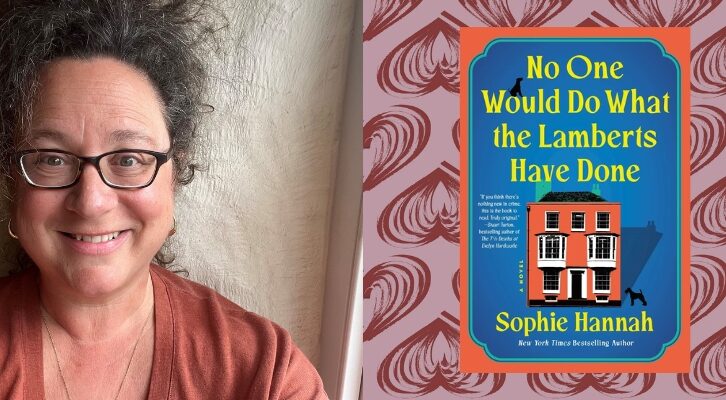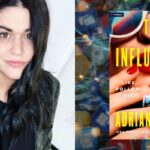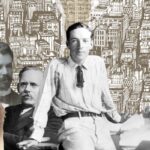
Interview with a Gatekeeper: Archipelago's Jill Schoolman
A Great Small-Press Champion of Translation
Jill Schoolman, founder and publisher of Brooklyn-based Archipelago Books, is pretty fearless despite her petite frame and soft voice, which you’ll never hear on a smartphone because she doesn’t own one, even though I offer to go with her to a nearby cellular phone store. Her priority is simple: find, translate, edit, and publish essential foreign-language texts. The name, Archipelago, expresses how Schoolman sees her book list: as a collection of disparate narratives with individual shapes and ecosystems all swirling about in a landscape of different countries, languages, authors, translators, and voices, but uniting to promote global understanding in the sea that is good literature.
Kerri Arsenault: How did you come to editing?
Jill Schoolman: I was working in film, but I had studied literature and film in college. I took a film course in Rockport, Maine, and after that, I worked as a freelance film editor in Paris for a couple of years. I was having a hard time surviving there—I delivered pizzas on mopeds and did all sorts of things to make ends meet. I wound up heading to New York, where I continued doing freelance film work. At some point, I began thinking, How might it be possible to shift gears and get into publishing? At just the right moment I met Dan Simon at Seven Stories Press and asked him for his thoughts. He told me everyone creates his own path, which seems to be true. He offered me a position as an intern, and then, after a few months, he hired me to work as an editor. I was there for about three years. It was a great place to learn about independent publishing and the whole publishing process. It was a very familial group. There was always a lot to get done but we had a good time and the atmosphere was nurturing. I’m still close with so many of the people I worked with at Seven Stories. At the time, I wasn’t really bringing in books, I was mainly learning about editing.
KA: How does one learn to be an editor?
JS: You have to be a good reader, a good writer, and have a good ear. I think you also need to be a good listener. You have to listen to the writer’s voice and not impose your own voice on a text. Being a good translator is a similar craft: to be able to feel the spirit of the text and see what the writer is trying to do. When you start out editing, there’s a tendency to over-edit, to be a bit heavy-handed. But the more you edit, the more you grow to respect the text. You can also feel very quickly if you are not adept at it. It’s not for everyone.
KA: You say you have to be a good reader: what were you reading at that time?
JS: Part of my love of international literature comes from traveling. I love exploring different parts of the world and living in different places—discovering a culture through its literature and art. I fell in love with the Russians, I loved reading Piñera and Alejo Carpentier when I was in Cuba and reading Juan Rulfo’s Pedro Páramo after spending time in Mexico. A bit later—probably around the time where I started working with Seven Stories—I fell in love with the modernists: Cortázar, Robert Musil, Céline, Pessoa.
KA: Are you fluent in any languages?
JS: I am fairly fluent in French. I can also get by in Spanish. I’ve spoken English since I was a kid, but I still find it challenging.
KA: Tell me more about your connection with traveling and writing.
JS: I used to spend long stretches of time in places. The travel bug got into me after I went to Tanzania. The summer after my freshman year in college, I got into a program called Operation Crossroads Africa. You could choose what sort of work you wanted to do in Africa for a summer: construction, health services—I can’t remember what the other options were. Education wasn’t a choice, but I ended up teaching English and geography in the mornings at a school while I was there, though unofficially. We were really in the middle of the savannah, in a place called Balangdalalu, where a Nilotic group called the Barbaig was living. Anyway, I opted for construction. There were a few Americans, a few Europeans, and about eight Tanzanians working together. We didn’t get much beyond digging the foundation for the school and finding stones in an old riverbed and bringing them to the site in a pick-up truck. I was learning Kiswahili and I met a lot of great people. That was an influential summer for me. I thought, this is how I want to learn: on the job, experientially, with people. A few years later, I spent three months in Italy. I took a year off from university to live in England, where I worked at the National Theater as an usher. What a wonderful job that was.
KA: How did you end up starting Archipelago Books from there?
JS: After about three years of working at Seven Stories, I was getting the itch to move on. I started talking to people. I already knew I wanted to create a press at some point but I thought I should probably get more experience somewhere. I knew I wanted to focus on international literature. I asked peoples’ advice as to whether the press should be a nonprofit or a for-profit. Everyone had their own opinion, but I’m glad we set ourselves up as a nonprofit because it has given us a lot of freedom. While the book sales are important, they are not vital to keep the press going. Being a nonprofit allows us to raise funds in addition to working with what book sales bring in.
KA: How do you do that?
JS: We raise money through the National Endowment for the Arts, the New York State Council for the Arts, New York City’s Department of Cultural Affairs, through private foundations, ministries of culture, and through individual donors. We have a fundraiser once a year. Many governments—European and Asian—have a cultural arm and cultural attachés based in different countries to promote their literature abroad. They understand the importance of culture and want to share it with the rest of the world. They help publishers with translation costs and promotional expenses. About 45 percent of our income comes from book sales and the other 55 percent from what we raise.
KA: So back to how you started Archipelago…
JS: After Seven Stories, the more I started thinking and talking about it, the more I wanted to make the leap and start a press, which I did in 2003. We started out with four books: Miljenko Jergovic’s Sarajevo Marlboro, translated by Stela Tomasevic, Rilke’s Auguste Rodin, translated by Daniel Slager—William Gass wrote an introduction for us, David Hinton’s translations of the Chinese poet Meng Hao-jan, and Joseph Coulson’s The Vanishing Moon. With only a handful of books lined up, we were very lucky to be able to find a distributor to take us on. Consortium Book Sales and Distribution took us under their wing and was a big part of why we made it onto the map so quickly. We met Consortium thanks to a wonderful consultant we had in the early days, a South Dakotan transplanted to Minnesota who knew an enormous amount about nonprofits. His first question for me was, “Do you really need to start a publishing house? Can I talk you out of it?” When I assured him it was something I needed to do, he proceeded to get down to the nuts and bolts of not-for-profit publishing.
KA: How did Minnesota become such a nonprofit literary zone?
JS: It actually makes sense. It’s a philanthropic place in part I think because of the Scandinavian influence.
KA: Was it difficult to launch Archipelago, despite such nonprofit support?
JS: It was tough to raise money at first. My grandmother, who was not a wealthy woman, died right around the time I was trying to get Archipelago off the ground. She was a working-class woman who lived frugally her whole life and managed to tuck away some savings. She left a little chunk of that for my brother and me. I put that money into Archipelago. About enough to acquire, translate, and print two books. It was a lot of work. It still is. It never gets easier.
KA: Can we go back to something you said earlier, about why publishers don’t want to publish translated books?
JS: I think it’s mainly fear and feeling disconnected from the writing itself. Editors may not speak other languages. They can’t read a work from another language in its entirety. Yes, it is possible to ask for a reader’s report from a translator or a professor, but then an editor is removed from direct contact with the text. She or he is responding to another person’s instincts and sensibilities. There is also the issue of translation costs, which many editors are reluctant to invest in, let alone the added royalties for the translator. Of course, those same editors don’t blink when they offer large advances for an English-language work, which in many cases becomes more costly than the combined acquisition and translation advances for an inspired novel from another part of the world.
There’s more interest in translation today, and these fears I’m talking about are less prevalent than they used to be. It seems that in the last eight to ten years, people are hungrier to read writing from around the world, and might even feel a bit nervous not to know what is being published and talked about in other countries. Our president-elect, living in his own imaginary world and doing what he can to drag the country into it, is a circus barker for xenophobia. It is palpable that more and more people are alarmed and feel how utterly necessary it is to listen to voices from other cultures, voices of sanity who perhaps have been through similar moments in history. It is dangerous to shut ourselves off, not only from the realities of today around the globe, but also from the imaginations of others, from the experiences of others, from the wisdom and cries of others.
KA: What would you say to someone who wants to start working in publishing?
JS: Try to talk to a lot of people. Really take some time to look at which publishers and which houses are doing books you are drawn to. It’s important to be working on something you care about. You will learn so much more from authors and thinkers and publicists and editors that you respect. It will be a better experience than being a cog in a wheel at a place where you feel half-hearted about what is being brought into the world.
KA: What about getting into editing specifically?
JS: You have to trust your ear and gut, to sense in what directions a book could conceivably grow. It is important to trust yourself, but maybe it’s even more important to trust the writer and what is on the page in front of you—to see through what’s not working to what is working and what is strong or essential. Editing an English-language text requires different skills than editing a translation because the editor is often shaping a text closely with the author. With a translation, there’s less of that, at least for us. We don’t alter the original text, even if it’s a lengthy or digressive book where there are portions that might not speak as directly to English-language readers as they might have to their original audience. We focus instead on making a text come alive in English. We work closely with translators for the most part rather than with authors.
KA: What do you expect from your translators?
JS: A great translator can capture the spirit and music of the language. It’s almost miraculous when a translator is able to capture what an original piece of writing is doing, both at the level of language and in its tone and atmosphere and rhythm. It comes alive. Richard Sieburth, for example—who translates from both German and French—is able to re-create the rhymes and rhythms and nuances of a poet’s voice in an uncanny way. It takes not only a talented craftsman to do this, it takes a poet. People say it’s impossible to translate poetry, which I don’t believe is true. It is being done, and it’s being done beautifully.
KA: How is translating poetry done?
JS: You have to make choices, leaps. It’s like being a ventriloquist. It’s capturing the soul of someone, of what’s said and what’s not said. The rhythms of the language. One of our books, Stone Upon Stone by Wiesław Myśliwski, translated from Polish by Bill Johnston, is oral and colloquial. It’s a rural epic. In this case the translator is British, which opens up other questions. When he re-creates slang, British slang comes out. We have this joke: would Joe from Kansas know what that expression means?
KA: How do you handle that? The book can’t contain only what Joe from Kansas would understand. It also needs to include Peter from Liverpool, no?
JS: Yes, you’re right. It’s also an intuitive process. Like an editor, a translator has to be a very good writer and have an excellent ear. They also have to have empathy and listen and intuit what the writer wants. They have to be a sensitive reader. If not, they will miss the connections, the references—cultural and literary. That means they also have to have a depth of knowledge in the culture. They have to decide whether or not they want to explain those references. Personally, I never like when a translator tries to explain something within the text. A footnote might be useful about something she thinks a reader will miss if it’s important enough. I believe in trusting the reader and being faithful to the work. If you are a heavy-handed translator, you can kill a work by trying to spell things out that were beautifully ambiguous or layered in the original.
KA: Let’s talk about your translators. Who are they? Are they artists, scholars, writers, or?
JS: We treat translators like writers, because they are writers. We do what we can to find the absolute best translators for our books. We like to continue working with talented translators, so we’ll often move from project to project. It’s not a one-off. We try to involve them with the promotion of their books. We’ll do events with them, schedule interviews for them, or maybe one translator will interview another translator in public. Particularly, if we are publishing a classic, the translator naturally becomes the spokesperson for the book. They usually rise to the occasion. Readers seem eager to hear what translators have to say about their work.
KA: How do you find the absolute best translators?
JS: Sometimes we find them and sometimes they find us. Most translators we have found through reading their work. There may be a project a translator is attached to. Sometimes we’ll ask two translators to translate an excerpt from a book that we are considering. It is amazing to see how different from each other those pages can feel.
KA: Have you done any translations yourself?
JS: Yes, in French. I translated a short work of fiction by the Swiss French writer C.F. Ramuz, called The Circus, which A Public Space published. It was tricky. Harder than I thought. The language was straightforward, sort of spare, and he obviously weighed his words. There were plenty of trouble spots for me, but I enjoyed the process.
KA: What risks are you willing to take in publishing (besides publishing translated works)?
JS: You never know what people are going to notice or read, even when you publish a great book. So much depends on the art of the translation, the art of the original book, the literary quality. But a lot depends on luck and timing. Reviewers are so swamped, so overwhelmed, that they’re often looking for a hook. For example, we published Elias Khoury’s Gate of the Sun, translated from Arabic by Humphries Davies. Khoury is a Lebanese writer and it so happened that Palestine and Israel were in the news at that moment, so critics were willing to give his book more space. Everything lined up in the right direction. Once a book gets a good review somewhere, other people want to review it. It’s a domino effect. Then again, sometimes the books I think are going to do well are quiet books.
KA: Many other editors agree; there doesn’t seem a way to determine a bestseller or a critical success.
JS: The whole enterprise is a risk.
KA: How does being a nonprofit lessen that risk?
JS: It allows us to raise money for all our expenses, advances, promotional costs, and printing costs, which is still the largest cost we have.
KA: But for-profit presses have those same expenses, no?
JS: They have investors, so then you owe them part of the profits. Anything that we make from book sales and what we raise goes back into running the press, into all the expenses. When I spoke with people from the very beginning, before I started, a lot of people feared nonprofits.
KA: Why?
JS: They thought if we had funders, they might want to have a say in what kind of books we publish. But we haven’t encountered that. We have a board that’s very generous and hands-off on the editorial side. Our supporters, both foundations and individuals seem to believe in what we are doing and trust our instincts.
KA: What exactly is your mission?
JS: Our mission is to publish innovative and essential literature from different parts of the world in outstanding translations.
KA: I love that you consider them essential.
JS: I’m drawn to original voices, to writers that care deeply about language and have something vital to say.
KA: Is an original voice harder to translate?
JS: Translating—or recreating—a voice that doesn’t sound like anyone else’s may be harder, but I think that in a way they jump out at you. Bruno Schultz or Cortázar or Sebald or Coetzee (who of course writes in English) have such distinctive voices that we are able to recognize them after reading just a couple paragraphs. A great translator knows how to convey a distinctive voice, rather than flatten or disguise it.
KA: Are there any specific languages that you hope to translate from?
I’d like to publish more books from smaller languages, from Indian, Indonesian, and African languages. There are more than 80 languages in Indonesia alone. There are a huge number of African languages, too, but often writers from the continent of Africa chose to write in the language of their colonizers either because they feel their work will reach more people or because it’s the language they were educated in.
KA: What have you published, at this point, from smaller languages?
JS: We’ve published books from Hungarian, Bengali, and Icelandic. We just published our second Halldór Laxness novel, Wayward Heroes. It’s a marvelous book beautifully translated by Philip Roughton.
KA: Iceland’s geography is so unusual. Do you think landscape affects writing?
JS: Yes. I think it must affect music too. If you listen to mountain music from different parts of the world, you can feel similarities. It would be interesting to take a closer look at how geography influences the creative impulse.
KA: You are also starting a new imprint.
JS: That’s right, we’re starting a children’s book collection, picture books from around the world. Elsewhere Editions. We launch this spring with three books: Claude Ponti from France, Roger Mello from Brazil, and Jostein Gaarder from Norway.
KA: That’s smart. Get them reading translated books as children and that may transfer to their adult reading habits where you will have books waiting for them.
JS: And vice-versa. Some of our adult subscribers have kids. I also want people to hand the kids’ books to their adult friends too. We were looking for books where the author has created a universe you can step into and lose yourself in.
KA: Do you have an audience in mind when you choose which books to publish?
JS: Not really, although perhaps that would be a good idea. I tend to focus on the writing itself, but there are other considerations. Sometimes I will think: is this an author that has written other books that we might want to bring out? We want to get behind authors rather than single books. I feel like an audience will find its way if it’s is a profound book and the translation reveals that. Sometimes I will ask myself—is this story or predicament relevant? Is there a sense of urgency, both for the writer and the reader? Is this a book that feels tied to our current moment—even it’s a classic—that talks about conflicts and questions that we are struggling with today. This month we’re publishing a truly great Haitian writer, Marie Vieux-Chauvet. Her novel, Dance on the Volcano, translated by Kaiama L. Glover, sheds light on racial conflict and the Haitian Revolution. She has great insight into human behavior and into questions of race and power. It’s hard to ignore how those racial tensions and complexities relate to what is happening here in America now.
KA: Small, independent presses seem to be having a moment, as are lesser-known writers like Vieux-Chauvet.
JS: It may be that the bigger houses are more and more focused on the bottom line. This obsession with profit leads to ignoring a lot of worthwhile books. There are a lot of great books quietly waiting to be snatched up by independent presses that can say, This is a great book and we are going to publish it as best we can without anyone breathing over our shoulder. Indie presses are freer.
KA: Tell me how you work with translators.
JS: It varies. Some translators do five or six drafts before we see it. They turn in something that’s polished, alive, and works well in English. It’s a gift. I feel like I’m proofreading rather than editing. Some turn in drafts that are much rougher. If I can read the original language, then I’ll have that next to me as I go. I can follow more closely the choices a translator has made.
KA: You must be doing something right. You were awarded the Chevalier of the Order of Arts and Letters by the French Embassy. Tell me what that meant to you?
JS: It was a great honor. I was shocked. It was astonishing that the French government recognized our efforts in such a formal way. It also has been a motivation for us to continue our commitment to French and Francophone literature.
KA: How has publishing Karl Ove Knausgaard’s My Struggle series changed Archipelago? Or has it?
JS: It’s made us more visible in the press, but it hasn’t really changed things that much for us financially. What comes in after everyone takes their share is actually fairly small. We also published his second novel, A Time for Everything, a few years before My Struggle came out.
We invited him to New York then when he was virtually unknown here. It was amazing to watch how readers and critics responded to My Struggle. His following grew with the release of each new book in the series.
KA: Was there a reason My Struggle connected with English audiences?
JS: There is a hypnotic quality and a sense of urgency to the books that seems to come from what he’s searching for. Something beyond his words. The larger knots he’s untangling and the questions that burn through his writing are felt but not seen. It’s as is he’s afraid of slowing down, of what he might discover if he actually lets himself think about what he’s running toward and away from. His raw honesty is addictive and in his hands it becomes something new, but I feel that it’s the undertow of what he is looking for just out of reach that keeps readers involved and wanting more.
KA: Did his success turn on people to translated literature in a more commercial way?
JS: Over the years there have been quite a few writers from various parts of the world who have created a sensation, who have found wide audiences. I think that each time it happens, it might inspire some people to read other authors from beyond our borders. And it might also inspire editors to publish more translations. It’s hard to say.
KA: What have you published recently?
JS: We just released a beautiful memoir by the Rwandan writer Scholastique Mukasonga called Cockroaches—which is what the Hutu called the Tutsi. She lost 30 members of her family in the genocide. Writing is her way of dealing with the horror, by making sure no one forgets what took place.
Jordan Stump did a stunning job with the translation. He’s someone who, before he takes on a book, will translate ten pages just to see what it feels like, to get a visceral sense of the language and rhythm and tone. He will say no to a book he likes if he doesn’t feel that he’s the right translator for it. An honorable thing to do.
KA: Speaking of honorable, The French Embassy said this about you; you give the public what they don’t even know they are looking for.
JS: Wow, that’s a really nice thing to say. I didn’t know they said that.
KA: What do you think your translators would say about you?
JS: You should ask them! But I hope they feel they are part of a community.
Kerri Arsenault
Kerri Arsenault is a literary critic, co-director of The Environmental Storytelling Studio at Brown University; Democracy Fellow at Harvard’s Charles Warren Center for Studies in American History; fellow at the Science History Institute in Philadelphia; contributing editor at Orion magazine; and author of Mill Town: Reckoning with What Remains. Her writing has been published in the Boston Globe, The Paris Review, the New York Review of Books, Freeman’s, the Washington Post, and the New York Times.



















